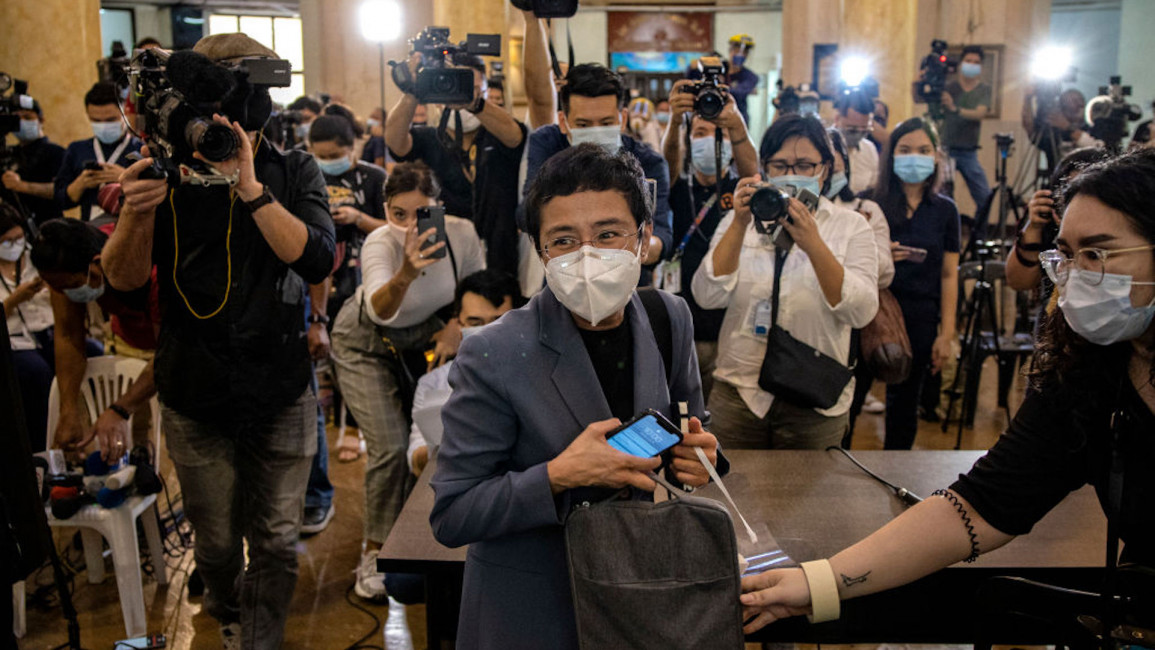Award-winning Filipino journalist conviction sparks international outrage
The trial was labelled by rights groups as yet another example of limitations on press freedoms in a country characterised by strongman President Rodrigo Duerte’s crackdown on human rights.
Ressa, 56, and her news site Rappler have been the target of a series of criminal charges and probes after publishing stories critical of Duterte's policies, including his drug war that has killed thousands.
Ressa, is one of the first two journalists to be found guilty of “cyber libel” and faces up to six years in behind bars for publishing an article linking the businessman Wilfredo Keng to illegal drugs and human trafficking, as well as lending his car to a senior judge.
The article was written by former Rappler reporter, Reynaldo Santos Jr, who was the other journalist found guilty in Monday’s trial.
"Rappler and I were not the only ones on trial… I think what you're seeing is death by a thousand cuts - not just of press freedom but of democracy," Ressa said.
Twitter Post
|
Both journalists were allowed to remain free on bail while the appeal process is in place.
Government investigators initially dismissed the case, but state prosecutors later filed charges against Santos, even though the article was published after the controversial cyber crime statute was enacted.
Prosecutors say that the correction of one word in the original 2012 article in 2014 counts as republishing the article which meant it was thus covered by law.
President Duterte's spokesman, Harry Roque, said the president backs free speech and has never filed a libel case against a journalist while in government.
"The president supports freedom of expression and freedom of the press. I hope that's clear," Roque said.
But rights groups and press advocates say the libel charge along with a series of tax cases against Rappler, and a government move to strip the news site of its licence, amount to state harassment.
Reporters Without Borders (RSF) called the criminal case a “shocking judicial masquerade” and called on the country’s justice system to “recover a semblance of credibility by overturning her conviction on appeal.”
“By passing this extremely harsh sentence at the end of utterly Kafkaesque proceedings, the Philippine justice system has demonstrated a complete lack of independence from the executive,” said Daniel Bastard, the head of RSF’s Asia-Pacific desk.
Human Rights Watch said the case "will reverberate not just in the Philippines, but in many countries that long considered the country a robust environment for media freedom".
The Philippines has fallen in the Reporters Without Borders press freedom index to 136 out of 180 nations and territories.
Ressa's verdict comes just over a month after government regulators forced off the air the nation's top broadcaster ABS-CBN, following years of threats by Duterte to shut down the network.
Both Rappler and ABS-CBN have reported extensively on Duterte's anti-drugs campaign in which police have gunned down alleged dealers and users in operations condemned by rights groups.
Some of the crackdown's highest-profile critics have wound up behind bars, including Senator Leila de Lima, who is serving three years in jail on drug charges she insists were fabricated to silence her.
In 2018, Duterte denounced Rappler as a "fake news outlet" and subsequently banned Ressa and her colleagues from his public engagements.
Follow us on Facebook, Twitter and Instagram to stay connected



